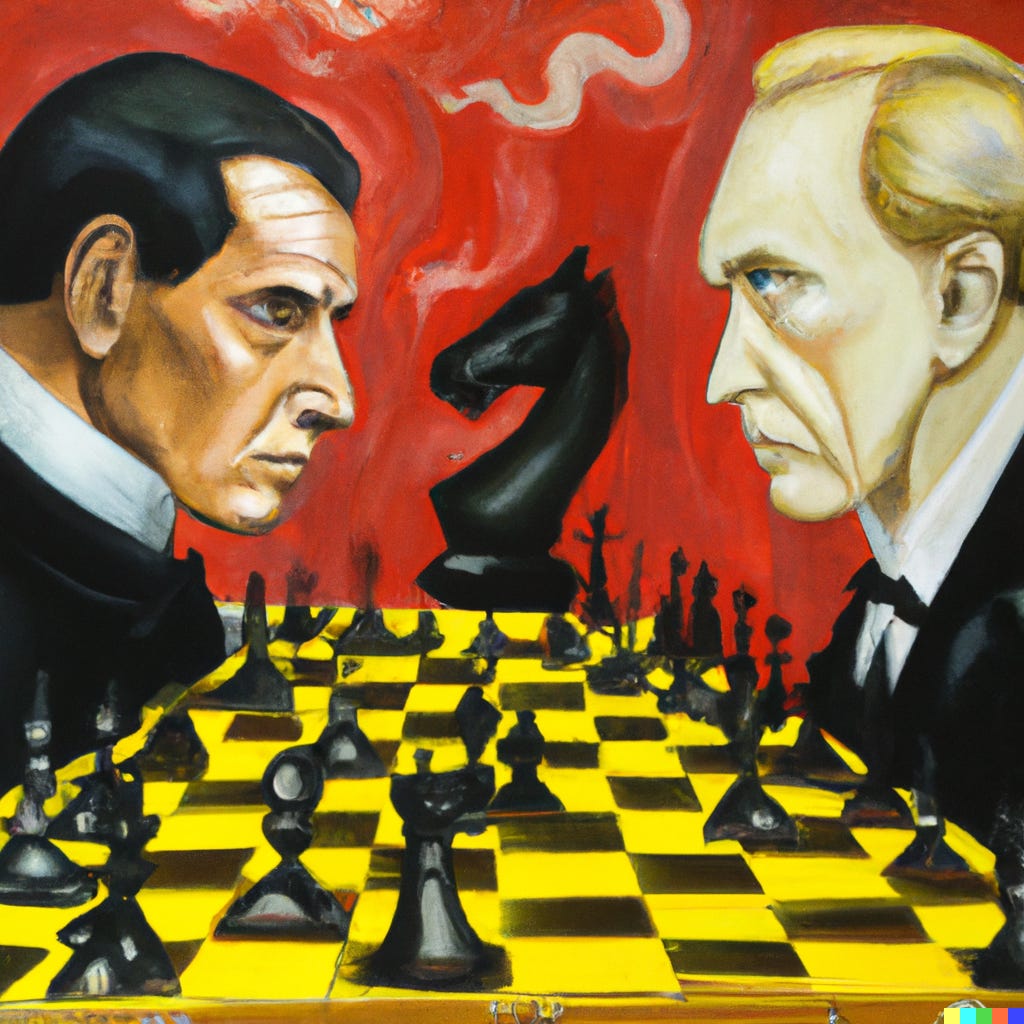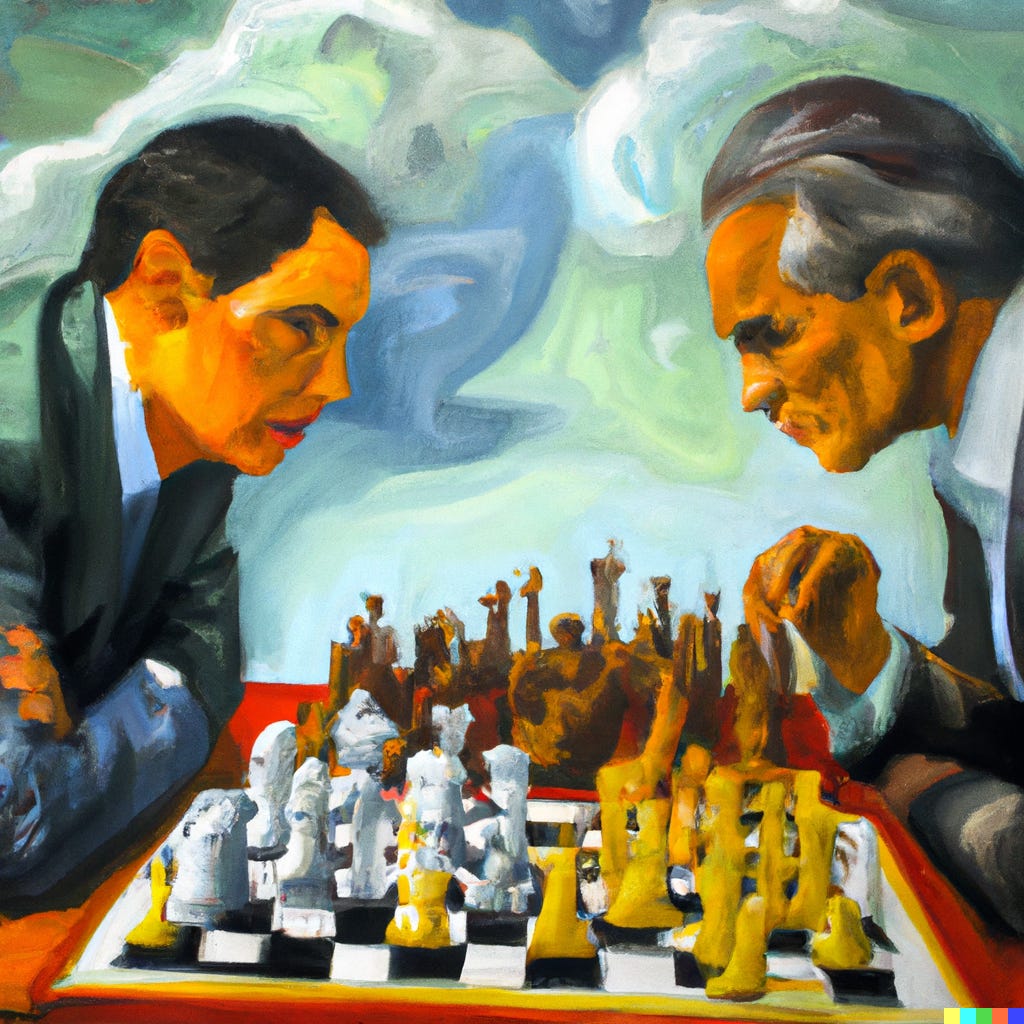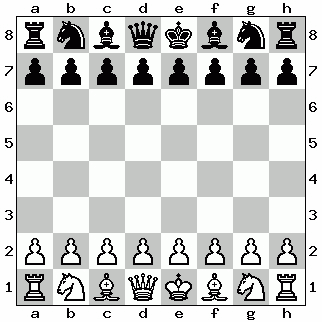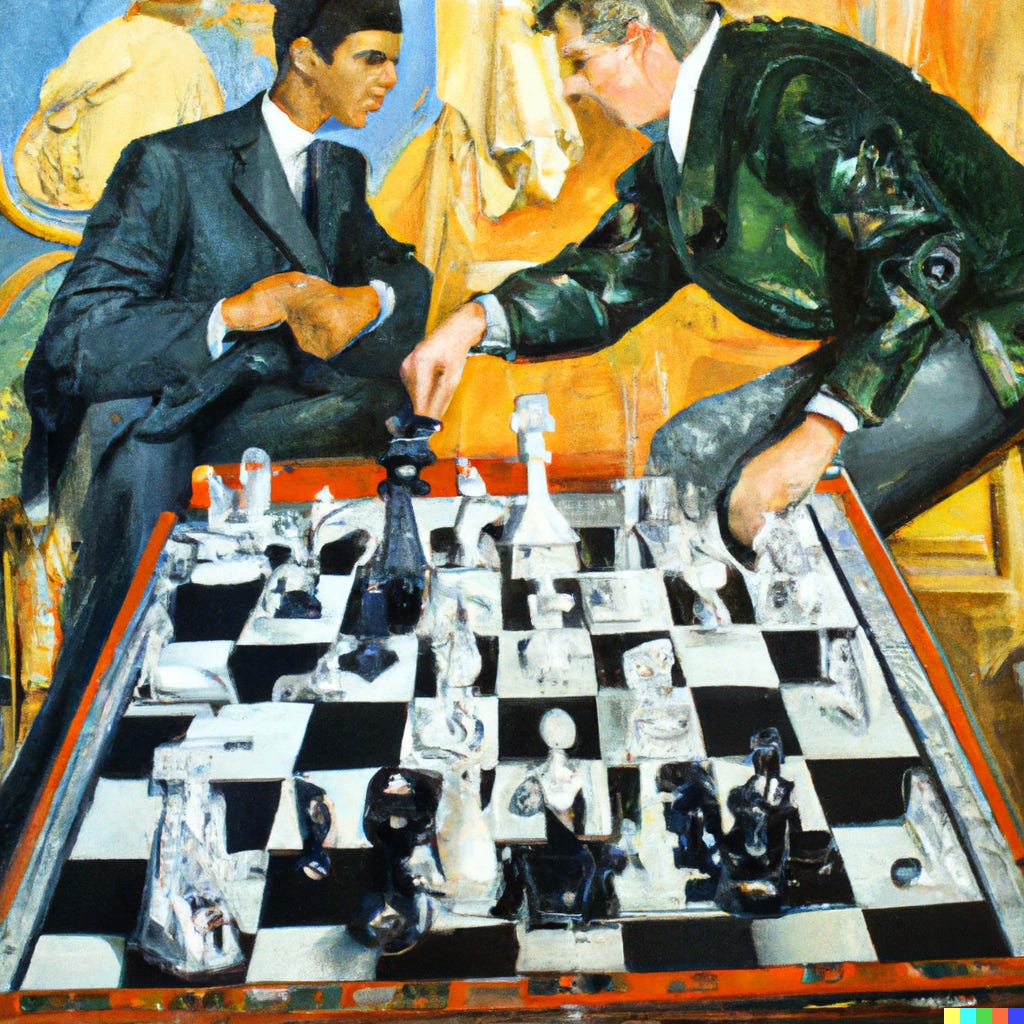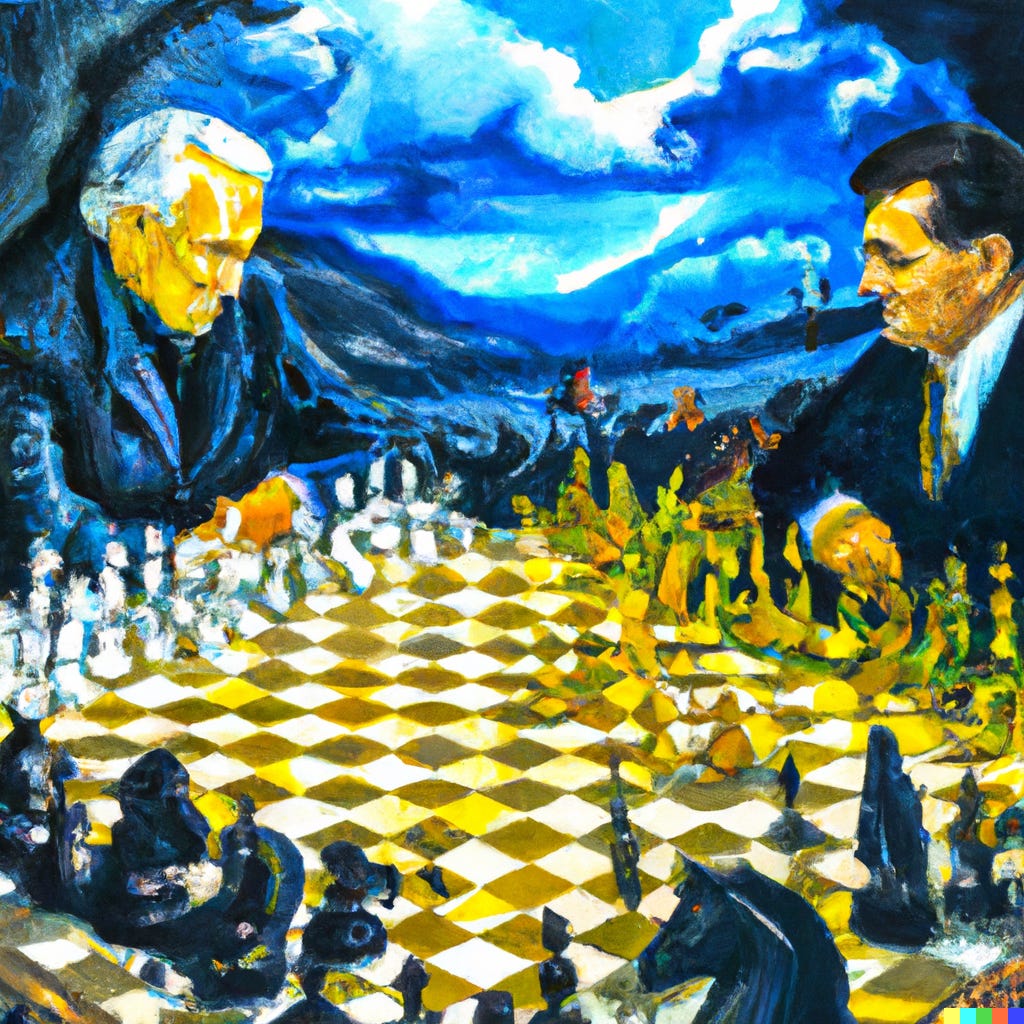Bobby Fischer was an American chess prodigy and grandmaster who is widely considered one of the greatest chess players of all time. He was born on March 9, 1943, in Chicago, Illinois, to Regina Wender and Hans-Gerhardt Fischer, a German biophysicist. His parents divorced when he was two years old, and he was raised by his mother in Brooklyn, New York.
Fischer's interest in chess began at an early age, and he quickly showed a natural talent for the game. He began playing in local tournaments at the age of 8 and by the time he was 13, he had won the United States Junior Chess Championship. In 1958, at the age of 15, Fischer became the youngest player to win the United States Championship, a record that still stands today.
Fischer's rise to fame in the world of chess continued throughout the 1960s. He won the United States Championship eight times and played in several international tournaments, including the Candidates Tournament, which determined the challenger for the World Chess Championship. In 1972, Fischer defeated Boris Spassky of the Soviet Union to become the World Chess Champion, the first American to hold the title.
Fischer's playing style was characterized by his exceptional positional understanding, tactical skills, and his ability to find brilliant and unexpected moves. He was known for his meticulous preparation and attention to detail, often spending hours studying opening variations and analyzing his opponents' games. His determination and competitive drive were also legendary, and he was known for his intense focus and concentration during games.
One of the factors that made Fischer such a great player was his ability to innovate and adapt to new styles of play. He was one of the first players to introduce the Sicilian Defense into high-level play, and he was also a pioneer in the use of the Fischer Random Chess variant, which involves randomly setting up the pieces on the board.
Bobby Fischer was widely considered one of the strongest chess players of all time, and his dominance over his peers was reflected in his rating, which measures a player's strength relative to other players. Fischer's highest Elo rating was 2785, achieved in January 1972, which was the highest rating in the world at the time. He also held the record for the highest-rated player in the world for 21 years, from 1971 to 1992.
There were several factors that contributed to Fischer's superiority over his peers in terms of rating. First, Fischer was a prodigy who started playing chess at a young age and quickly showed a natural talent for the game. He was also extremely dedicated and worked tirelessly to improve his skills, studying chess books and playing against strong opponents.
Another factor that contributed to Fischer's high rating was his exceptional playing style. Fischer was known for his positional understanding, tactical skills, and ability to find brilliant and unexpected moves. He was also a pioneer in the use of the Sicilian Defense and Fischer Random Chess variant, which gave him an edge over his opponents.
Fischer's rating dominance was also helped by the fact that chess was not as popular and widespread as it is today. There were fewer strong players, and it was easier for top players to maintain their rating by playing against weaker opponents. The rating system itself was also less sophisticated than it is today, with fewer data points and a smaller pool of players to compare against.
In contrast, today's chess scene is much more competitive, with a larger pool of strong players and a more sophisticated rating system that takes into account a wider range of factors, such as the strength of the opposition and the time control of the game. As a result, it is much more difficult for players to achieve and maintain high ratings.
Fischer's World Championship match against Boris Spassky in 1972 was one of the most significant events in the history of chess. The match was played in Reykjavik, Iceland, and was seen as a symbolic Cold War battle between the United States and the Soviet Union. Fischer's eccentric behavior during the match, including his insistence on playing in a private room and his demands for special conditions, added to the drama and tension of the event. This was a pivotal moment in the match, which was seen as a symbolic Cold War battle between the United States and the Soviet Union.
Robert James Fischer vs. Boris Spassky
Game 6:
1. c4 e6 2. Nf3 d5 3. d4 Nf6 4. Nc3 Be7 5. Bg5 O-O 6. e3 h6 7. Bh4 b6 8. cxd5 Nxd5 9. Bxe7 Qxe7 10. Nxd5 exd5 11. Rc1 Be6 12. Qa4 c5 13. Qa3 Rc8 14. Bb5 a6 15. dxc5 bxc5 16. O-O Ra7 17. Be2 Nd7 18. Nd4 Qf8 19. Nxe6 fxe6 20. e4 d4 21. f4 Qe7 22. e5 Rb8 23. Bc4 Kh8 24. Qh3 Nf8 25. b3 a5 26. f5 exf5 27. Rxf5 Nh7 28. Rcf1 Qd8 29. Qg3 Re7 30. h4 Rbb7 31. e6 Rbc7 32. Qe5 Qe8 33. a4 Qd8 34. R1f2 Qe8 35. R2f3 Qd8 36. Bd3 Qe8 37. Qe4 Nf6 38. Rxf6 gxf6 39. Rxf6 Kg8 40. Bc4 Kh8 41. Qf4 1-0
The significance of Game 6 was not just in the result, but in the psychological impact it had on the match and on the players themselves. Fischer's win was a major turning point in the match, as he had been trailing in the series and needed a win to stay in contention. The victory gave Fischer the confidence and momentum he needed to go on and win the match.
The game also had a profound impact on the chess world as a whole, inspiring a new generation of players and helping to popularize the game around the world. Fischer's bold and creative play, combined with the political drama surrounding the match, captured the imagination of millions of people and helped to raise the profile of the game to new heights.
Despite these distractions, Fischer played some of the best chess of his career in the match. He won the first game with a stunning combination, and after losing the second game, he went on a remarkable run, winning games 3, 4, 5, 6, and 8. Fischer's dominance over Spassky was such that the Soviet grandmaster resigned the 6th game with a move still available to him, acknowledging Fischer's superiority. Fischer won the match with a final score of 12.5 to 8.5, becoming the first American to win the World Chess Championship.
Before the match, Fischer had demanded a number of unusual and unprecedented conditions, including a larger prize fund, a special playing room, and a guarantee that the match would be played over the best of 24 games. Fischer was also concerned about the playing conditions, such as the noise level in the playing hall and the lighting.
These demands caused considerable consternation among the organizers and officials, who were accustomed to a more standardized approach to chess matches. However, they eventually agreed to most of Fischer's demands, including a prize fund of $250,000, which was a record at the time.
After winning Game 6, Fischer received a standing ovation from the audience, which included many American supporters who had traveled to Iceland to watch the match. Fischer was visibly moved by the outpouring of support, and he stood up and took a bow, which only added to the drama and excitement of the moment.
However, Fischer's success in the match was not without consequences. The pressure of playing in such a high-stakes event, combined with his own perfectionism and paranoia, took a toll on his mental health. After the match, Fischer became increasingly reclusive and eccentric, withdrawing from competitive play for several years.
Bobby Fischer's later life was marked by personal and legal troubles, as well as ongoing struggles with his mental health. In 1992, Fischer made a comeback to competitive chess when he played a rematch against Boris Spassky in Yugoslavia, which violated international sanctions. Fischer was later indicted by the United States government for violating the embargo and was wanted for arrest, which resulted in his exile from the United States.
In 2004, Fischer was detained in Japan for traveling on a revoked U.S. passport. The United States requested his extradition, and Fischer spent several months in detention while his case was being decided. In 2005, Iceland, where Fischer had played his famous 1972 match against Spassky, granted him citizenship and he was released from detention and flew to Iceland.
In 2008, Fischer died in Reykjavik at the age of 64 from renal failure. His death was widely mourned in the chess community, and many eulogized him as one of the greatest chess players of all time.
Fischer's legacy is a complex one. He was a genius of the game, but his eccentricities and erratic behavior led to numerous controversies and legal problems. He is remembered for his contributions to chess, but his later years were marred by isolation and conflict. Nevertheless, Bobby Fischer's exceptional talent, creativity, and dedication to the game of chess, combined with his record-breaking achievements and impact on the chess world, make a strong case for him being considered one of the best chess players who ever lived.




